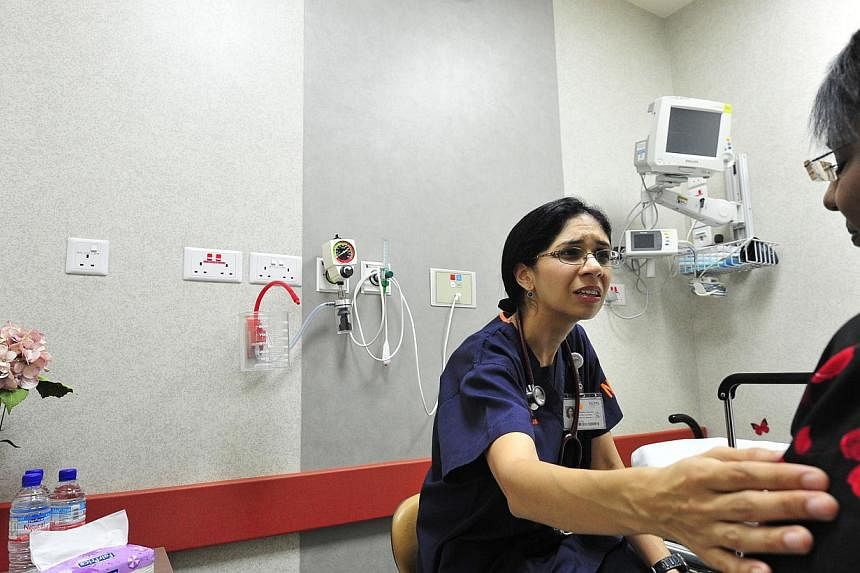SINGAPORE - The National University Hospital is starting a dedicated palliative care service in its emergency department (ED) to relieve patients' suffering.
Doctors see the need as more elderly have died in the ED in the past two years.
"As our population ages, patients with advanced chronic illness and crisis events such as severe pneumonia or heart attack, are likely to increase," said Associate Consultant for Emergency Medicine Rakhee Yash Pal at NUH. "The default mode in emergency medicine is maximum resuscitation, but not every patient might want that or benefit from that," she said. NUH is also believed to be the first hospital to start a palliative service in its ED.
Currently, patients and their family members might need to wait several hours to see a palliative specialist, especially if an emergency happens at night. Some might not even make it, thus the need to train ED staff to provide prompt palliative care, Dr Yash Pal said.
For a start, the ED has carved out a quiet room, where family members can spend their last moments with the patient. The room provides a comfortable environment for loved ones to say their last goodbyes, instead of being surrounded by beeping machines and busy hospital staff in other areas of the emergency department.
Doctors and nurses in the emergency department will also be trained to prepare family members for the death of their loved ones.
"It's all about asking the right questions. Instead of asking 'Do you want to go all the way?', the question might be 'Did your loved one say anything about having tubes and lines in him in his last moments?'," said Dr Yash Pal.
They will also be trained to advise family members on how to care for their dying loved one if the patient wishes to die at home. This is important as a Lien Foundation survey found that 77 percent preferred to die at home.

